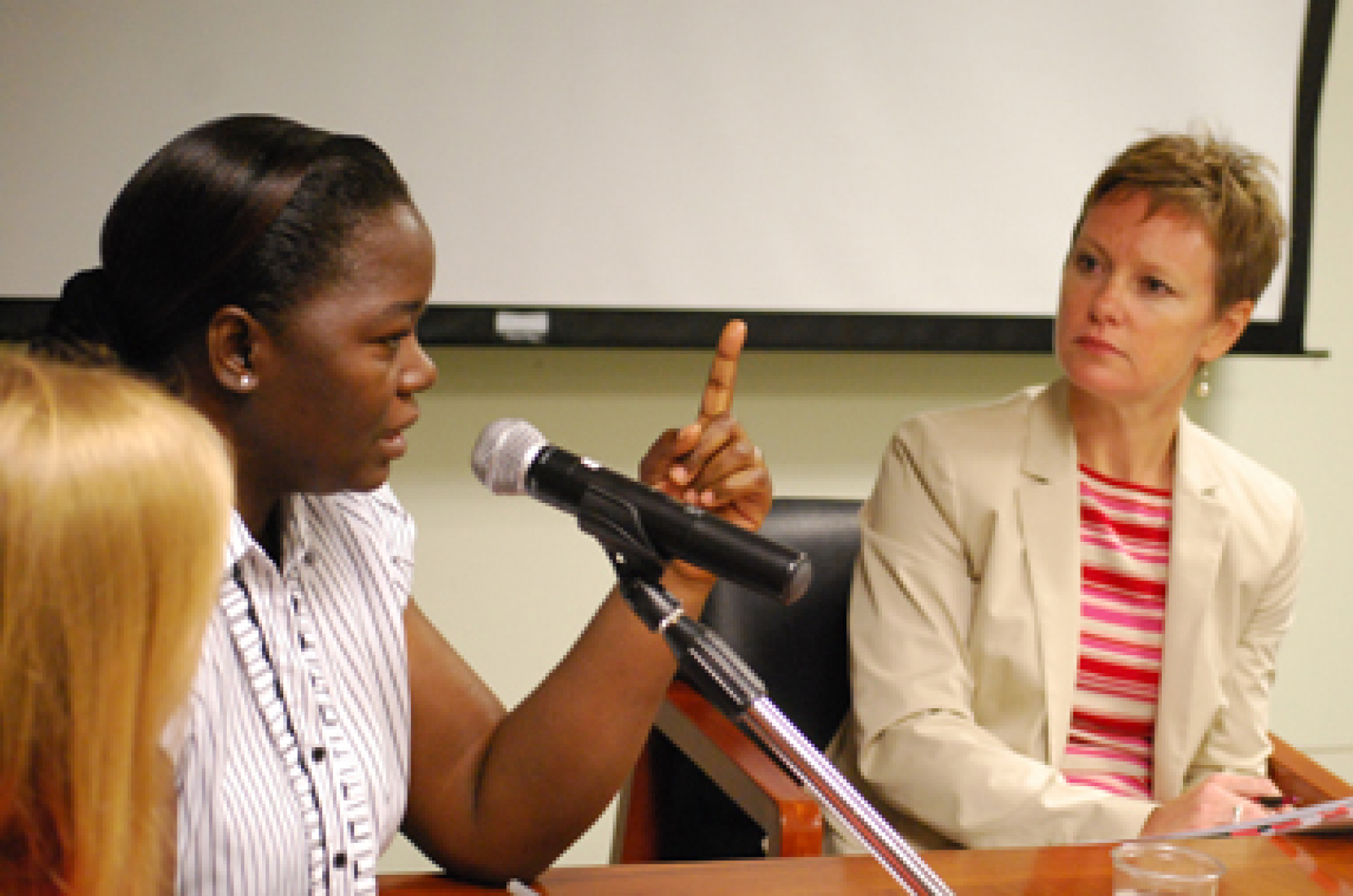
SHARE
Many applauded when the legislature in the West African country of Burkina Faso passed a gender quota law last year requiring 30 percent of the candidates on political party lists to be women. It held the promise of new opportunities for Burkinabe women, traditionally marginalized politically, to gain elective office at both the national and local levels.
But while the law was enacted more than a year ago, there has been little progress on implementing it, even though local and legislative elections will be held in 2011 and 2012, respectively.
“Despite the political will that prevailed in adopting this law, a satisfactory application is not guaranteed,” said Aminata Kassé, NDI’s country director in Burkina Faso.
She noted that opposition leaders are apprehensive that the law could further marginalize their parties, since it mandates reduced public financing for non compliance.
Opposition parties have had more difficulty recruiting women than the ruling party, and a loss of public financing could be crippling. In a country that only recently embraced multipartism after decades of one-party or military rule, most political and economic leaders are part of the ruling party. Therefore, women are concerned that there will be fewer career advancement opportunities if they join an opposition party.
Other critics of the law point to the vagueness of some of its provisions, which are open to multiple interpretations. For example, the law does not specify how the election commission should verify which parties meet the 30 percent criterion, what type of information the parties need to submit to prove that they are in compliance, or whether the required 30 percent should be calculated on a nationwide basis or by district.
 Political party members, the election commission, government ministries and the National Assembly convened to discuss the quota implementation in June.
Political party members, the election commission, government ministries and the National Assembly convened to discuss the quota implementation in June.To support a harmonious implementation of the statute, NDI helped to establish, prior to the law’s passage, the Coalition for the Implementation of the Quota Law – a coalition comprising eight civil society organizations and three political parties. In June the coalition convened members of political parties, the election commission, government ministries and the National Assembly to evaluate the technical challenges of applying the provisions of the quota law in the upcoming elections. The forum identified a number of challenges and agreed on recommendations on how different political actors could overcome them. Senior NDI staff moderated the discussions and later forwarded the recommendations to government ministries, political parties, the election commission and other groups.
One of the key recommendations from forum participants was the need for the government or National Assembly to develop guidelines for how the quota law should be implemented. The forum advised political parties to alternate the names of men and women on the party lists in order to give women a better chance, for example.
Pictured Above: Nestorine Compaoré, NDI's senior program manager in Burkina Faso, discusses the difficulties of implementing the quota on a panel at NDI with Susan Markham, the Institute's director of women's political participation.
Published July 19, 2010


